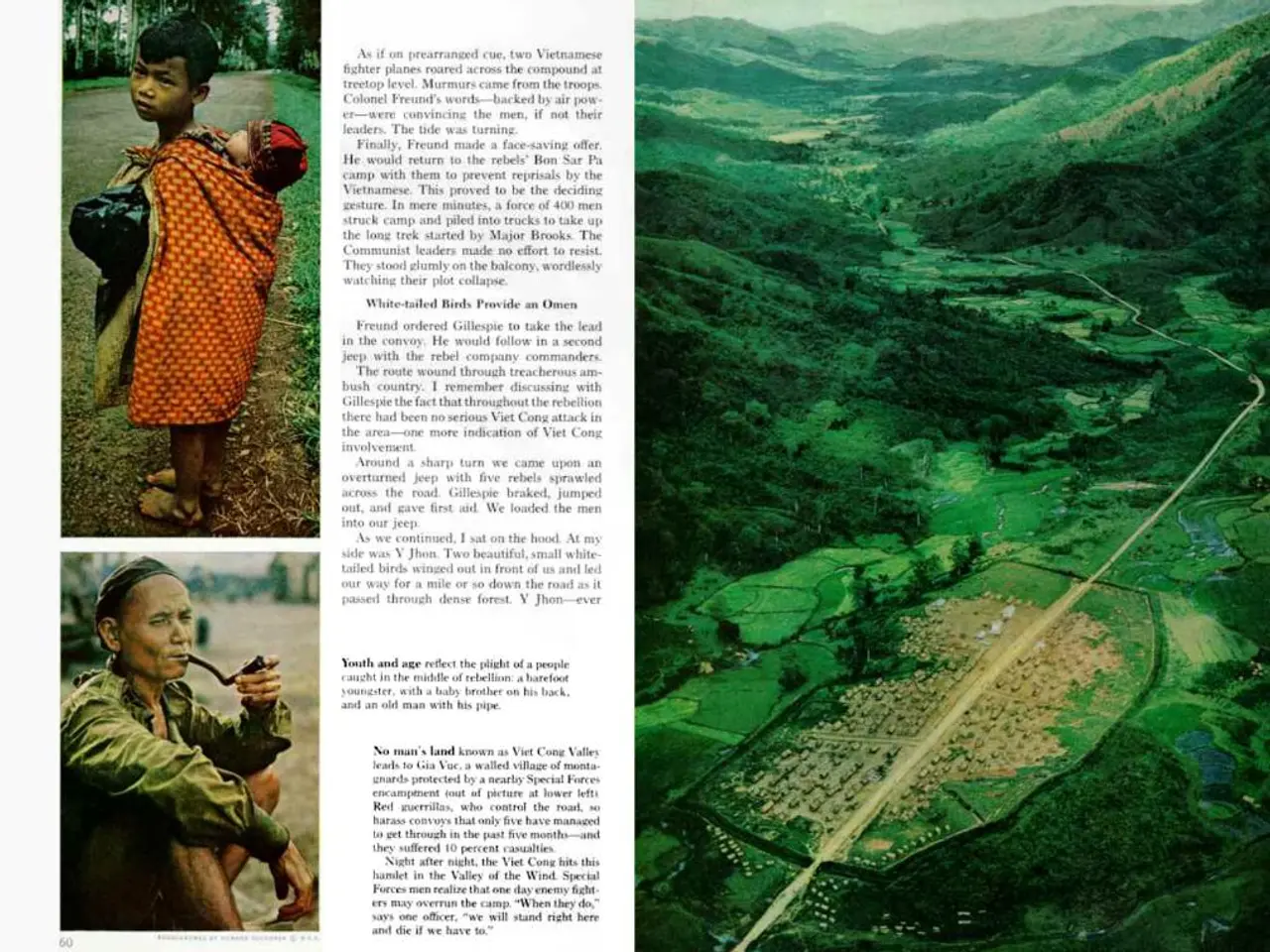Conflict in Gaza, World Health Organization issues alarming prediction of famine similar to explosive impact
The small coastal enclave of Gaza continues to grapple with a severe humanitarian crisis, marked by food and water scarcity, widespread malnutrition, and deadly obstacles to aid delivery.
The international community, humanitarian organizations, and the Church have been relentless in their calls to end the starvation of Gaza's population. However, the situation seems to worsen day by day, with the collapse of aid distribution facilities and access restrictions causing acute shortages of food, clean water, fuel, and medical supplies.
Yesterday, nearly 5,000 children from various areas of Gaza suffered from acute malnutrition, and 838 from severe malnutrition, according to the UN and other organizations. The Director-General of the World Health Organization (WHO), Tedros Adhanom Ghebreyesus, denounced the high number of people dying from mass hunger and the fatal increase in deaths linked to malnutrition in Gaza.
Israel has imposed a near-total blockade and a militarized aid distribution system run by the Gaza Humanitarian Foundation (GHF), a private US-Israeli group. This system has led to chaotic and dangerous distribution conditions, including numerous civilian deaths while trying to access aid sites—875 people were reported killed recently just seeking food, many around GHF sites.
These conditions amount to deliberate starvation tactics, which Amnesty International describes as part of an ongoing campaign tantamount to genocide, aiming to bring physical destruction upon Gaza’s population through a mix of starvation, disease, forced displacement, bombardment, and infrastructure destruction.
The blockade has caused acute shortages of food, clean water, fuel, and medical supplies, exacerbating malnutrition, especially among children and vulnerable groups. Approximately 470,000 people in Gaza—about 22% of the population—are at risk of mass starvation, with hospitals overwhelmed by malnutrition cases.
In an attempt to alleviate the suffering, 70 trucks of aid were allowed into Gaza yesterday, according to COGAT (Israel's organization for coordinating government activities in the territories). However, this is insufficient to meet even the most basic survival needs. The International Rescue Committee and other agencies emphasize the urgent need to restore unrestricted aid access to avert widespread famine and further loss of life.
The crisis in Gaza stems primarily from Israel's stringent blockade and control over aid delivery, combined with military actions near aid sites and general destruction of critical infrastructure. The ongoing conflict, now in its 22nd month, has taken a heavy toll on the region's population.
Notably, religious leaders have joined the chorus of voices calling for an end to the violence. The Archbishop of York, Stephen Cottrell, expressed solidarity with the Christian community of the Holy Family in Gaza and called for an end to the violence, hunger, and dehumanization inflicted on the population. Cardinal Pierbattista Pizzaballa, the Latin Patriarch of Jerusalem, defined the ongoing massacre in Gaza as "unjustified and unacceptable."
The US Middle East envoy Steve Witkoff is in Olbia, Sardinia, for negotiations with Israeli Minister Ron Dermer and Qatari Prime Minister Mohammed bin Abdulrahman Al-Thani to find common ground on the agreement for a ceasefire. The hope is that these negotiations will lead to a permanent resolution to the crisis in Gaza, bringing an end to the suffering of its people.
Israeli President Isaac Herzog, during his visit to Gaza yesterday, stated that Israel acts "according to international law." However, the actions on the ground paint a different picture, with military operations continuing unabated in Gaza, resulting in ten victims reported this morning in raids in the center and south of the Strip.
The Archbishop of York also criticized the bombing of places of worship in Gaza and called for an immediate end to the war and massacres. As the international community watches, the situation in Gaza remains dire, with no end in sight to the suffering of its people.
[1] https://www.amnesty.org/en/latest/news/2021/03/palestine-israel-gaza-unrelenting-crisis-of-starvation-and-death-in-gaza-must-be-addressed/ [2] https://www.un.org/apps/news/story.asp?NewsID=61643 [3] https://www.bbc.com/news/world-middle-east-56754790 [4] https://www.aljazeera.com/news/2021/3/22/gaza-crisis-un-warns-of-mass-starvation-as-israeli-blockade-continues
- The dire humanitarian crisis in Gaza, marked by food and water scarcity, widespread malnutrition, and deadly obstacles to aid delivery, has drawn sharp criticism from various sectors, including the international community, humanitarian organizations, religious leaders, and Amnesty International.
- In addition to war and conflicts, Gaza is also grappling with issues such as mental health, health and wellness, fitness and exercise, and nutrition due to the lack of resources and access to essential supplies.
- Social media platforms have played a crucial role in shedding light on the crisis, presenting shocking images of starvation and malnutrition, and fueling calls for policy and legislation changes to address the situation.
- The high number of deaths from mass hunger and the fatal increase in malnutrition-related deaths in Gaza have led the Director-General of the World Health Organization, Tedros Adhanom Ghebreyesus, to denounce the situation as unacceptable.
- The ongoing cycle of violence and destruction has implications for entertainment, as artists and musicians worldwide express solidarity with the people of Gaza and call for an end to the ongoing conflict.
- Crime and justice are also concerns, as the blockade and military actions near aid sites have led to numerous civilian deaths while trying to access aid sites. The International Rescue Committee and other agencies emphasize the urgent need for accountability and justice for these victims.




